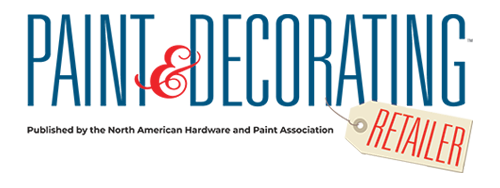
Founder and Former CEO
A Few Cool Hardware Stores
When I launched our first store in 2003, I knew that managing “the numbers” wasn’t going to be my strong suit. I also knew that it was vital to start off on the right foot—to lay the foundation of a financially strong business that was being built to last.
Fortunately for me, my husband Marc joined the business shortly after we opened and made accounting his priority.
This month, I sat down with Marc to get his best advice about healthy retail accounting practices and his answers are reflected below.
Top 2 KPIs to Track
Marc did not hesitate to list his top two “must-dos” when it comes to managing key performance indicators (KPIs).
Sales per payroll hour
We know that payroll costs will continue to rise, so tracking sales per payroll hour (SPH) is the tool we use to ensure efficient and productive teams. The simple formula of dividing sales by payroll hour, adjusted monthly, ensures we are not overspending. We follow local guidelines for minimum hours per shift, scheduling laws and overtime rules to balance out this very important metric. Our store managers are responsible for SPH implementation.
Profit margin
Maintaining a high gross margin dollar number via our pricing structure is one of the best levers we have for success. This year we implemented a fine-line review of our prices utilizing Margin Master with the intent of identifying opportunities to raise and lower prices. Our intent, a 1% gross margin increase, was achieved within six months, resulting in a $260,000 margin gain.
What Pitfalls Can We Avoid
I asked Marc about the biggest pitfalls retailers face in their finance departments, and he had one overarching recommendation for all of us.
He said: “For many of us, 70% of our expenses are our cost of goods and payroll dollars, yet we disproportionately focus on the bottom 30%, trying to make an impact with line items that represent 2% or less of our expenses, things like trash and recycling services, credit card fees, marketing costs, etc.”
To counteract this, he recommends we first concentrate on that top 70% and get those big ticket items right. Then we chase the smaller buckets, which will effectively add up to a bigger, stronger organization.
“Don’t chase pennies until the dollars are in order” was his closing advice.
Get Your Team Involved
We bonus our team on the stuff they have control over. This structure reflects the top KPIs, particularly sales per payroll hour, rounded out by other metrics that may change annually. Marc doesn’t think it’s healthy or smart to focus solely on numbers to measure the health of our companies. Track and train on employee engagement scores, OSATs and customer feedback to build a strong organization.
Outside Resources
Here are a few resources that our team uses.
- Bloom Retail Services—this is the company we engaged for our pricing exercise
- Third party accounting—we have successfully partnered with WipFli since 2018
- Take advantage of your NHPA resources—the NHPA Academy for Retail Development is a great place to start
- Educational podcasts—I really like Ryan Tansom’s Intentional Growth Podcast
Look for outside resources and question your status quo on an on-going basis to ensure your finances are being tracked and reported accurately. Make sure your whole team is involved and understands the process—the health and vitality of our businesses depend on it!
Meet Gina
Gina Schaefer is the founder and former CEO of 13 hardware stores in Washington, D.C., Baltimore and their suburbs. She and her team of 300 have helped millions of customers shop right where they live, in their urban communities, despite continuous pressure from bigger, stronger competitors. Gina is a professional speaker and storyteller, engaging audiences on topics, including competing in a male-dominated field, building a strong corporate culture, business succession planning and all things small business. In her book, “Recovery Hardware,” Gina chronicles her experiences building a business while learning from nontraditional teachers like folks from the recovery community and returning citizens. She serves as an advocate and spokesperson for causes directly related to raising wages, anti-monopoly legislation and small business development.
Connect with Gina:
Email – gina@ginaschaefer.com
LinkedIn – Gina Schaefer







